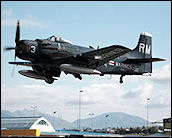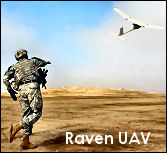![Guns by Al [CC-BY-SA-2.0 (http://creativecommons.org/licenses/by-sa/2.0)], via Flickr https://flic.kr/p/6gPGbx [cropped] Guns by Al [CC-BY-SA-2.0 (http://creativecommons.org/licenses/by-sa/2.0)], via Flickr https://flic.kr/p/6gPGbx [cropped]](https://www.exportlawblog.com/images/gun_house.jpg) The Directorate of Defense Trade Controls and the Bureau of Industry and Security today announced the proposed rules for the long awaited export control reform of Categories I, II and III of the United States Munitions List. The proposed rules for DDTC are here; the proposed rules for BIS are here.
The Directorate of Defense Trade Controls and the Bureau of Industry and Security today announced the proposed rules for the long awaited export control reform of Categories I, II and III of the United States Munitions List. The proposed rules for DDTC are here; the proposed rules for BIS are here.
Under the proposed rules, the only items remaining in Category I will be firearms that fire caseless ammunition, are fully automatic, or are specially designed to integrate fire control, automatic tracking, or automatic firing. Other small arms that were once in Category I will be moved to 0A501 and 0A502. Small arms that are on Category I of the USMIL will still be subject to the brokering rules of the ITAR even if they have been moved to 0A501 or 0A502.
These new proposed ECCNs will be controlled by, among others, RS1 and FC meaning that licenses will be required for all destinations. (RS1 captures every country but Canada and FC captures Canada). The BIS proposed rules also exclude the use of most license exceptions so that the new regime will closely parallel the available exemptions that were available under the ITAR.  So the result of the transition of these items from the USML to the CCL will mostly be a change in the agency with licensing authority.
There are a few significant changes, however, worth noting. First, the proposed rules would eliminate a particular bugbear of mine relating to the classification of rifle scopes. Currently, rifle scopes are ITAR if they are “manufactured to military specifications,” whatever that means.  Foreign manufacturers of rifle scopes routinely decline to state whether their scopes are Category I(f) or 0A987 and do not provide enough information to decide whether a particular scope is manufactured to military specifications. Under the proposed rules, a scope is on the USML only if it has night vision or infrared capabilities that would cause it to be captured under Category XII. Everything else is now 0A987.
Second, these new rules will reverse the questionable position that DDTC has taken in the Defense Distributed case.  In that case, DDTC argued that posting 3D gun plans on the Internet is an export of controlled technical date on Category I firearms to every foreign person with access to the Internet. BIS has a somewhat different take on posting things to the Internet.  Here’s what the proposed BIS rules say:
The EAR also includes well-established and well understood criteria for excluding certain information from the scope of what is “subject to the EAR.†(See part 734 of the EAR.) Items that would move to the CCL would be subject to existing EAR concepts of jurisdiction and controls related to “development†and “production,†as well operation, installation, and maintenance “technology.†While controlling such “technology,†as well as other “technologyâ€Â is important, the EAR includes criteria in part 734 that would exclude certain information and software from control. For example, if a gun manufacturer posts a firearm’s operation and maintenance manual on the Internet, making it publicly available to anyone interested in accessing it and without restrictions on further dissemination (i.e., unlimited distribution), the operation and maintenance information included in that published operation and maintenance manual would no longer be “subject to the EAR.â€
Part 734 makes clear that publication of technology on the Internet is not an export of that technology to the rest of the world; rather it is a release of that technology from export controls.
Third, the new rules will eliminate the issue as to whether firearms training is a defense service that cannot be provided by a U.S. person to a foreign individual without a license. Both the existing and latest proposed DDTC rule defining defense services would require a license to provide basic firearms training to a foreign individual. (The latest proposed rule permits basic training but only if there is an approved license to export the firearm to that individual.) The BIS analysis of this is somewhat different. The BIS notice of proposed rulemaking somewhat wryly states:
The EAR does not include a concept of “defense services,†and the “technologyâ€Â related controls are more narrowly focused and apply in limited contexts as compared to the ITAR.
In fact, of course, under the proposed rules training a foreign individual in firearms use would require a license only if it involved a control of technology covered by proposed ECCNs 0E501 or 0E502. However, neither ECCN covers information related to the use of 0A501 or 0A502 firearms.  As a result, firearms training that would have required a license under the old rules will not require a license if the new rules are adopted.
Photo Credit: Guns by Al [CC-BY-SA-2.0 (http://creativecommons.org/licenses/by-sa/2.0)], via Flickr https://flic.kr/p/6gPGbx [cropped]. Copyright 2009 Al

 Posted by
Posted by  Category:
Category: 

 Apparently it is not a job requirement at Immigration and Customs Enforcement to have to understand the laws that you are charged with enforcing, as
Apparently it is not a job requirement at Immigration and Customs Enforcement to have to understand the laws that you are charged with enforcing, as  Henderson Chua, a resident of the Philippines who was arrested when he traveled to Los Angeles in February, was
Henderson Chua, a resident of the Philippines who was arrested when he traveled to Los Angeles in February, was 

